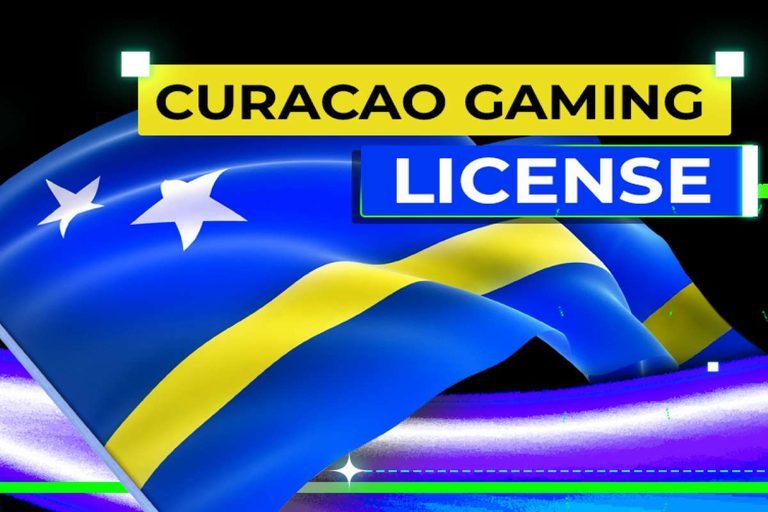Curacao’s Enhanced Gaming Regulation

Enhanced Scrutiny of Ultimate Beneficial Owners in Curacao’s Revised Gaming Regulation
The Curacao Gaming Control Board (GCB) has recently unveiled a set of stringent application submission guidelines that significantly bolster the regulatory framework governing the licensing of online casinos. Central to these new regulations is an intensified scrutiny of the Ultimate Beneficial Owner (UBO), alongside comprehensive Counter-Terrorist Financing (CTF) and Know Your Customer (KYC) protocols. This article critically evaluates the potential impacts of these changes, focusing on their efficacy in enhancing transparency and accountability within the gaming sector.
GCB's new Application Guidelines and their impact on Player Protection
The new application submission guidelines set by the Curacao Gaming Control Board (GCB) are designed with a dual focus: ensuring the financial stability and operational integrity of online gaming entities, while also significantly enhancing player protection. The detailed criteria required for submissions reveal a comprehensive approach to regulatory oversight. Here’s an analysis of the specific information required by the GCB and how each contributes to better protection for players:
- Realistic and Supported Projections: By requiring that financial projections be realistic and well-supported, the GCB ensures that entities are financially viable and capable of sustaining operations without resorting to unethical practices that could jeopardize player funds.
- Alignment of Funding with P&L Forecasts: This requirement ensures that the applicant has adequate funding to cover projected operations and liabilities over a three-year period, reducing the risk of insolvency which could leave players at risk of losing their deposits.
- Narrative on Past Performance and Markets: This requirement helps the GCB assess the track record of the business, providing insights into the operational competence and market behavior of the applicant. A stable and ethically sound past performance is indicative of future behavior, thereby offering a layer of protection to players.
- Risk Rationale for Existing and Target Markets: Understanding the risk management strategies for both existing and potential markets ensures that the operator is prepared to handle various operational challenges, including those that could affect player interests.
- Experience of Senior Management: Ensuring that the senior management has relevant experience and a proven track record of prudent financial management minimizes the risk of mismanagement, which can lead to scenarios detrimental to players, such as fraud or bankruptcy.
- Clear Demarcation of Responsibilities in B2B2C Models: This transparency helps prevent issues where the lines of accountability might otherwise blur, potentially leading to disputes or failures in protecting player data and funds.
- White-Label Business Model Agreements: Requiring clarity in agreements where responsibilities are shared ensures that all parties involved know their obligations, particularly in aspects that affect player security and fair play.
- Control over Third-Party Providers: By mandating that applicants demonstrate control over third-party interactions with players, the GCB ensures that the licensee maintains accountability for all player interactions, including the security of funds and fairness of games.
- Detailed Contractual and Financial Models: Requiring detailed descriptions of the relationships with key suppliers, including financial dealings, helps prevent financial improprieties that could endanger player funds.
- Transparency about Platforms and Payment Gateways: Clear information about the technical and financial infrastructures, including game and payment providers, ensures that the systems used meet international standards of security and reliability, safeguarding players’ funds and personal information.
- Authenticity of the Business Plan: Ensuring that the business plan is authored by the applicants themselves, rather than outsourced to third parties, increases the likelihood that the operational strategies are genuinely understood and will be implemented by the team, rather than being theoretically ideal but practically flawed.
- Usage of Sub-License and GCB License: This clarity helps prevent regulatory overlaps or gaps that could be exploited to the detriment of players, ensuring continuous oversight and compliance.
Overall, these comprehensive requirements form a robust framework aimed at ensuring that only financially stable, ethically managed, and fully accountable entities are allowed to operate. This not only protects players from financial risks but also enhances the overall integrity and reliability of the online gaming industry under Curacao’s jurisdiction. Such rigorous scrutiny ideally positions the GCB to prevent money laundering, fraud, and other financial crimes, thereby safeguarding both the players and the reputation of the industry.
The Role of the Ultimate Beneficial Owner
Under the new guidelines, the identification and verification of UBOs have been markedly strengthened. UBOs are defined as natural persons who ultimately own or control the casino operation. The regulations mandate the disclosure of intricate details pertaining to ownership and control structures, extending to the level of requiring information on all entities and individuals that form part of the ownership hierarchy up to the UBO.
The guidelines mandate that each UBO, regardless of their country of residence, must submit a Personal History Disclosure Form (PHDF). This form is a comprehensive tool designed to gather detailed personal and financial information, including past financial conduct and affiliations, which could signal potential risks not previously visible under older regulatory frameworks.
Counter-Terrorist Financing and Know Your Customer Measures
The Curacao GCB’s revamp of the CTF and KYC measures within its licensing process is particularly notable. Applicants are now required to provide exhaustive documentation detailing the source of their funds and wealth. This requirement is crucial for the prevention of financial crimes, as it aims to trace the origins of substantial investments and ensure they stem from legitimate sources.
Furthermore, these processes are designed to detect and prevent financial contributions to and from entities or individuals that might be involved in or support terrorist activities. The thoroughness of the KYC process also helps in establishing a clear picture of the financial health and ethical compliance of the entities applying for licenses, thereby safeguarding the gaming environment against exploitation for illicit purposes.
Legal Implications and Industry Compliance
The enhanced regulatory measures introduced by the GCB impose significant legal obligations on applicants. Failure to comply with these stringent requirements can result in the denial of a license application or revocation of existing licenses. This framework ensures that only entities with robust internal controls and transparent operational practices can engage in the gaming industry under Curacao’s jurisdiction.
The inclusion of such detailed requirements for UBOs, coupled with rigorous CTF and KYC processes, sets a high compliance threshold. This approach not only aligns Curacao’s regulatory framework with international financial regulatory standards but also significantly mitigates the risks associated with money laundering and financial terrorism within the sector.
The new guidelines regarding the Ultimate Beneficial Owner (UBO) are quite stringent and designed to make it more difficult for money launderers to operate within the online casino industry. Here are several key aspects that will make it challenging for money launderers:
- Detailed Disclosure Requirements: UBOs are required to provide comprehensive details about their ownership and control over the corporate entities. This includes disclosing all entities in the ownership structure up to the natural person(s) who ultimately owns or controls the casino operation. This level of detail makes it harder to hide the true ownership behind layers of corporate structures, a common tactic in money laundering.
- Personal History Disclosure Form (PHDF): UBOs and key individuals must submit a PHDF, which includes thorough background checks. These checks are likely to reveal any past criminal activities, including those related to financial crimes such as money laundering.
- Source of Wealth and Source of Funds: UBOs must clearly document their sources of wealth and the specific funds used for financing the casino operations. This requires providing evidence such as bank statements or other financial documents that trace the origin of the funds, making it difficult to use laundered money without detection.
- Continuous Monitoring and Updates: Any changes in the ownership structure or key management personnel must be promptly reported to the Gaming Control Board. This continuous monitoring ensures that any suspicious changes that might indicate money laundering activities can be investigated in a timely manner.
- Certification and Verification: All submitted documents, including proof of identity and financial statements, must be certified by authorized independent parties. This independent verification adds an additional layer of scrutiny, making it harder for fraudulent or altered documents to be accepted.
These measures collectively create a robust barrier against potential money laundering activities by requiring transparency, ongoing monitoring, and independent verification. The comprehensive approach ensures that only entities with clear, legitimate financial backgrounds are able to operate legally in the online casino market.
Final Thought
The Curacao Gaming Control Board’s new application submission guidelines represent a paradigm shift in the regulation of the online gaming industry. By placing enhanced emphasis on the scrutiny of Ultimate Beneficial Owners and integrating stringent CTF and KYC protocols, the GCB aims to foster a safer and more transparent gaming environment.
While these changes set a higher bar for entry into the market, they are a necessary step towards aligning Curacao’s gaming industry with global standards for financial integrity and security. The success of these measures, however, will depend largely on their consistent enforcement and the ongoing commitment of the GCB to adapt and respond to emerging challenges within the industry. This proactive regulatory posture is commendable and serves as a benchmark for other jurisdictions aiming to clean up their gaming sectors.
FAQs
What is the Curacao Gaming Control Board (GCB) and its role in online gaming regulation?
The GCB oversees licensing and regulation for online casinos, ensuring compliance with legal standards and player protection.
What are Ultimate Beneficial Owners (UBOs) and why are they under scrutiny in Curacao’s gaming regulation?
UBOs are individuals who ultimately own or control a casino operation. Scrutiny ensures transparency and prevents illicit activities.
What information do UBOs need to disclose under the new guidelines?
UBOs must provide detailed personal and financial information, including past conduct and affiliations, via a Personal History Disclosure Form (PHDF).
How do the new guidelines contribute to player protection?
They ensure realistic financial projections, proper funding alignment, and thorough risk assessment, reducing the risk of insolvency and fraud.
What measures are in place to prevent money laundering and terrorist financing in Curacao’s gaming sector?
Rigorous CTF and KYC protocols require exhaustive documentation on the source of funds, wealth, and ongoing monitoring to detect suspicious activities.
How does the GCB ensure accountability in business models like B2B2C and white-label agreements?
Clear demarcation of responsibilities and control over third-party providers prevent disputes and failures in player protection.
What happens if an entity fails to comply with the stringent regulatory requirements?
Failure to comply may result in the denial of a license application or revocation of existing licenses, ensuring only transparent and compliant entities operate.
What is the significance of requiring certification and verification of submitted documents?
Independent verification adds credibility, making it harder for fraudulent or altered documents to pass scrutiny.
How does the new regulation align with international financial standards?
By enhancing transparency, accountability, and regulatory oversight, Curacao’s regulation aligns with global standards, fostering financial integrity and security.
What are the potential impacts of Curacao’s enhanced gaming regulation on the industry?
These measures set a higher bar for entry, promote safer gaming environments, and establish Curacao as a jurisdiction committed to financial integrity and compliance.
Recommended Posts

Mobile Payments in iGaming
July 26, 2024

Understanding Casino License Revocation
July 24, 2024

Payment System in iGaming
July 23, 2024



